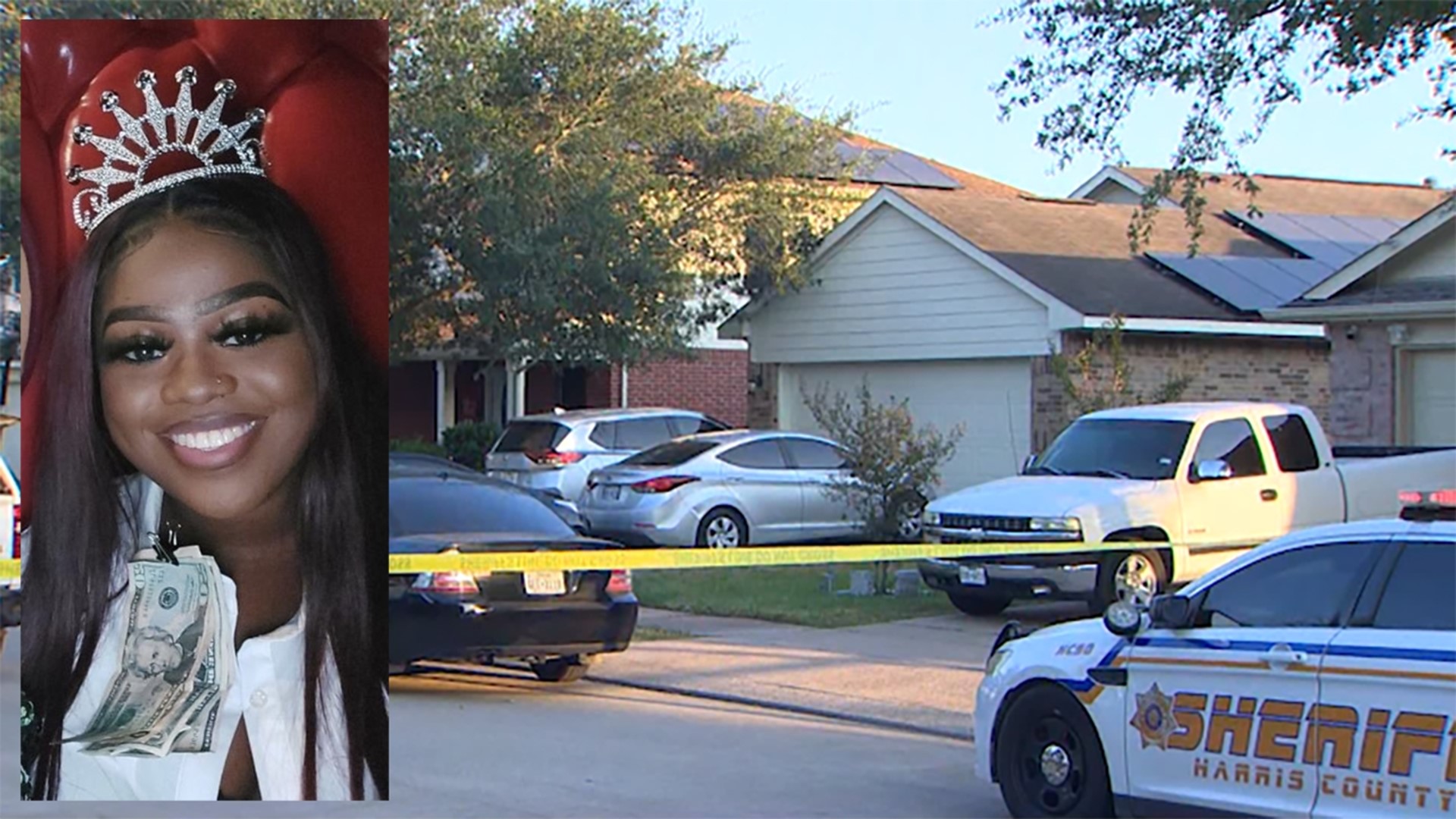Life Will Pay Whatever Price You Demand of It! The one thing I can tell you with great certainty is...
Family identifies woman killed in apparent murder-suicide in SW Harris County
'Very kind person' | Family identifies woman killed in apparent murder-suicide in SW Harris County

HARRIS COUNTY, Texas — A man and a woman were killed Sunday in an apparent murder-suicide, according to Harris County Sheriff Ed Gonzalez.
It happened at a house on Rain Willow Court in southwest Harris County. The house where the shootings happened is in a neighborhood just north of the Beltway near Almeda Road.
According to investigators, the 22-year-old man called his 23-year-old ex-girlfriend earlier in the day and showed up at her house around 3 p.m.
They went to her bedroom, and about 10 minutes later, other family members in the house said they heard gunshots.
When they went to check out what happened, they saw the woman had been shot, and the man still had the gun. Family members identified the woman as Tamara Sawyer, who was studying to be a nurse.
As the family members called 911, they told investigators they heard more gunshots. When authorities showed up at the house, they found the man and Sawyer dead in the bedroom.
Authorities said Sawyer and the man had been in an on-and-off relationship since high school. Family members said Sawyer and the man broke up about a month ago.
Authorities said there were three other people inside the house at the time of the shootings, including the woman's current boyfriend. No one else was injured.
Family members said there were no signs of domestic violence between Sawyer and the man.
Her family members described Sawyer as a very sweet person who loved fashion. She was originally from Ohio but moved to Houston, where her aunt raised her. She was the youngest in her family and graduated from Madison High School.
Here's the update investigators provided at the scene:
Commentary
I have been researching, writing, lecturing, and creating programs addressing these issues for over two decades. Domestic violence, in itself, is not some new phenomenon; however, its expression and prevalence in the Black community have proven to be excessively disturbing. Intimate partner homicide is one of the leading causes of death for Black females under 44. What is sad is that the number can be mitigated.
In studying African American adolescent and young adult male violence, I discovered several factors that allow us to predict and mitigate violence in Black males. At the top of the list is proper racial socialization. We must also provide a safe place to confront mental health issues. The Black Men Lead rite of passage initiative is a program I designed to address these issues.
The first of 11 primary principles taught is a Black man never harms a Black woman under any circumstance. The idea of being a protector has to be socialized into the subconscious of young males so that the idea of harming a Black woman is diametrically opposed to their nature. The critical thing to understand here is that men who commit violence against women are not born; they are created. We have a responsibility to do a better job of preparing your Black males to be men. My concern is that we haven't seen the worst of this type of behavior.
One final point is getting out of domestic violence situations is often more difficult than it appears to the average person. This particular story is the result of a young woman deciding to move on and a young Black male being unwilling to relinquish what he considers to be his power over her. Community and family are essential components necessary to assist young women in escaping violent relationships and safely moving on. Never underestimate the potential for violence, and be prepared to take extreme measures. ~ Rick Wallace, Ph.D., Psy.D.

Domestic violence resources
Domestic and family violence cases in the Houston area have increased at an alarming rate. Victims often suffer in silence because they feel scared, helpless, or ashamed.
If you or someone you know is a victim of domestic violence, here are some discreet ways to reach out for help.
The Houston Area Women’s Center has a 24-hour hotline for victims of domestic violence at 713-528-2121 or 1-800-256-0551.
The Family Time Crisis Center can also be reached 24 hours a day at 281-446-2615.
The National Domestic Violence Hotline is 1-800-799-SAFE (7233).





